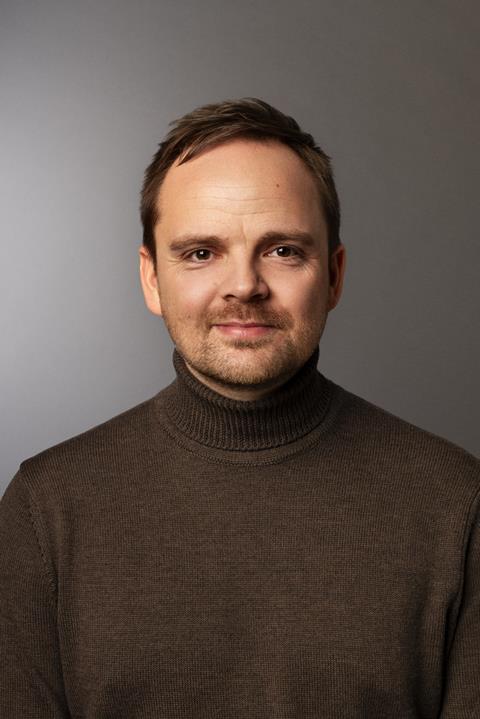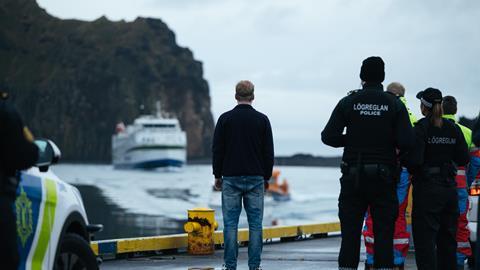Glassriver chief Andri Ómarsson on what the Nordic nation’s biggest prodco can teach the world
For years now, the television industry has been grappling with one disruption after another.
We have had shifting audience behaviours, writers’ strikes, the rise (and fall, and rise) of global streaming platforms, slowdowns in commissioning, and tightening budgets competing against inflated costs - to name but a few of the challenges facing the industry.

Amid all this uncertainty, one phrase seems to crop up repeatedly in industry conversations: “We’re waiting for the return to normal.”
It’s time we retire this idea once and for all.
The faster we accept the new normal, the faster we can focus on how to thrive in it.
Flexibility is the key
At Glassriver, Iceland’s largest TV production company, we’ve built our success on adaptability and collaboration – qualities that have long been essential for smaller markets like ours.
With the rest of the world now finding itself in a more unpredictable landscape, there are lessons to be learned from how smaller countries like Iceland approach TV production.
Currently, we have over 30 projects in development. We maintain a large slate because it allows us to be ready for what the market might want or need at a given time.
Some of those projects are purely Icelandic, but many have potential for international co-productions and collaboration, a model that has been a cornerstone of our approach for years. Why? Because collaboration makes us stronger.
Lessons from smaller markets
Smaller countries have always operated differently. For us, collaboration, co-productions and international partnerships aren’t just strategies; they’re necessities. With a population of not quite 400,000, we simply don’t have the same opportunities, resources or infrastructure of countries like the US, Japan, India, or the UK.
When your industry operates on such a small scale, you learn quickly that challenges are simply opportunities in disguise. It’s made us resourceful, nimble, and creative. We now bring just as much to the table, not despite, but because of our small size.
For example, Icelandic producers are adept at leveraging our unique landscapes, tax incentives, and unique local talent for international collaborations. This helps us punch far above our weight, delivering shows that resonate globally – our series Black Sands, for example, which has been sold around the world.
We’ve also just shot our co-production with SPi in Portugal, Cold Haven. The series is innately both Icelandic and Portuguese, following Icelandic detective Soffia as she attempts to solve a murder within the Portuguese community on Iceland’s Westman Islands.
The series is predominantly set on the Icelandic archipelago Vestmannaeyjar, as well as its capital Reykjavík and the Portuguese city of Lisbon. We’ve leveraged our own stunning natural landscapes as have our Portuguese partners, and created a series that makes sense to unfold across the two countries.
What can larger markets learn from this?
First, embrace co-productions - with smaller countries, too - to pool resources, sources of financing, and talent. Working with international partners has taught us the value of optimism and trust. The more we collaborate across borders, the more we can achieve.
Second, stay flexible. Smaller markets are used to pivoting quickly, whether it’s adapting to new funding models or experimenting with fresh creative approaches.
Third, choose your international partners wisely. Do your research, weigh up your options, and get to know them as people. Then when you are working together remember that the best work comes from a solid foundation of trust, and even with language barriers, it’ll get you through any tricky or tough parts of production.
Finally, remain optimistic. Titles like “Surviving to 2025” paint an unnecessarily bleak picture of our industry.
Instead, let’s talk about thriving and making the most of a changing world.
If Iceland has taught me anything, it’s that limitations can be a source of strength. We may be small, but we’ve proven that size doesn’t matter when you have a flexible, collaborative, and optimistic approach. And in this new era of global television, that’s a lesson worth sharing.
Andri Ómarsson is chief executive officer at Glassriver, which has been behind numerous dramas including Cold Haven for Icelandic streamer Síminn and RTP in Portugal, and Black Sands, which sold to Australia’s SBS and UKTV. It also recently unveiled Masquerade with Nicholas Weinstock, producer of AppleTV+’s Severance, and The Art of Coproduction’s Marc Lorber attached








No comments yet